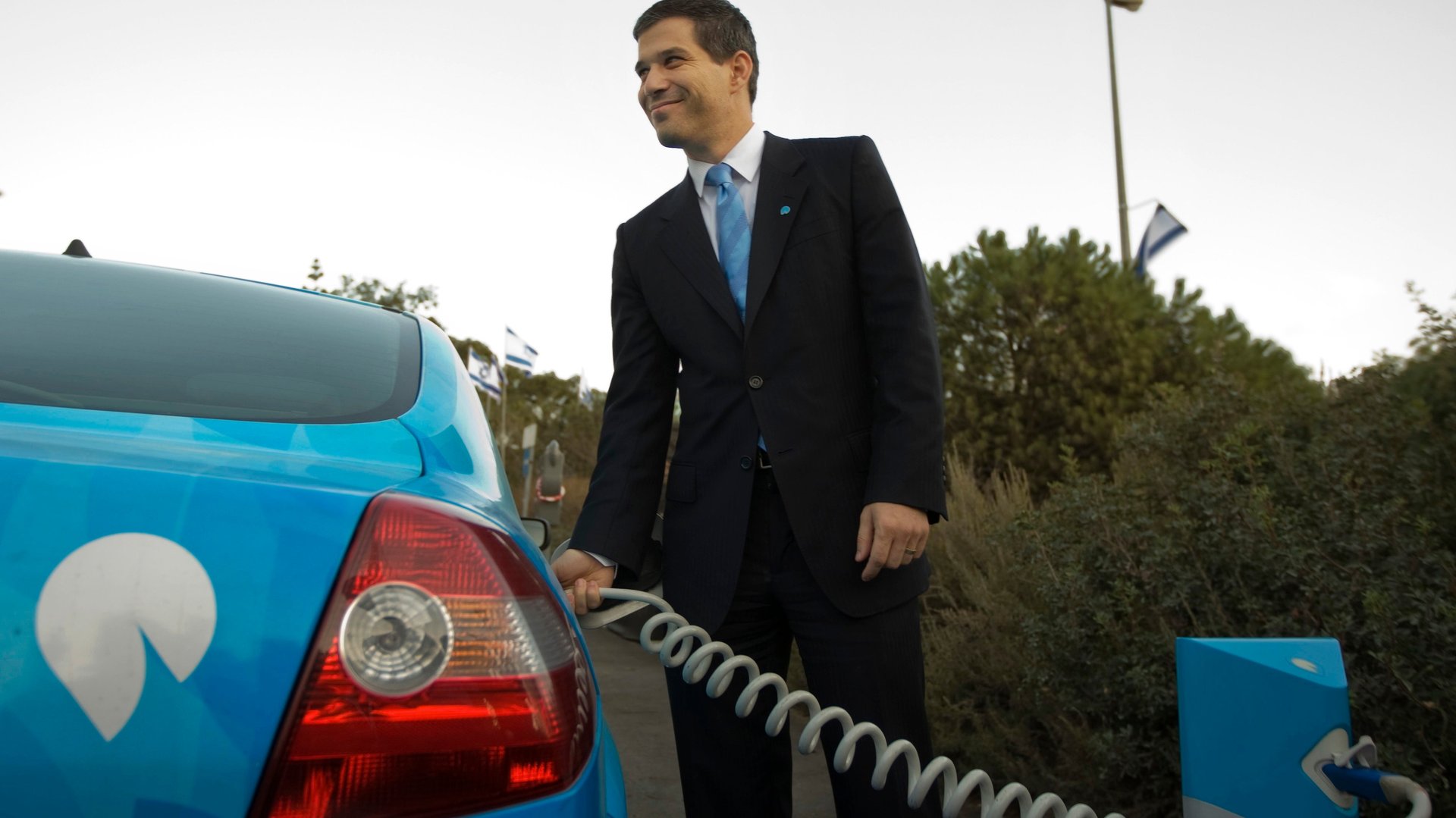How electric-car startup Better Place went to a worse one and lost $815 million along the way
Just how bad were things at Better Place, the now-bankrupt electric car infrastructure company? In 2012, Better Place lost $454 million (with revenues of about $7 million), according to financial filings from Israel Corp., the company’s largest shareholder.


Just how bad were things at Better Place, the now-bankrupt electric car infrastructure company? In 2012, Better Place lost $454 million (with revenues of about $7 million), according to financial filings from Israel Corp., the company’s largest shareholder.
Since its inception in 2007, Better Place had lost $812 million of the $850 million raised from Israel Corp., HSBC, General Electric, Morgan Stanley and other blue-chip investors.
Better Place’s outsize ambitions involved creating a global network of battery switch stations that would allow electric car drivers to swap depleted batteries for fresh ones with the ease of filing up the fuel tank of a gasoline-powered vehicles. The company retained ownership of the batteries, an electric car’s most expensive component, and drivers paid a monthly subscription fee based on how much they drove. The first Better Place car, an electric Renault Fluence ZE sedan, was roughly the same cost as a fossil fuel version.
Founder Shai Agassi, a former executive at software giant SAP, decided to build Better Place’s first two networks in Israel and Denmark—small island-like nations where fewer switch stations would be needed for drivers to make it across the country. Conceptually elegant, the Better Place model theoretically solved the two big obstacles to mass adoption of electric vehicles: high price and limited range. But in practice, the model was too capital intensive, and the company only convinced one carmaker, Renault, to make electric cars compatible with its system. As costs and delays mounted, Better Place shelved plans to roll out networks in Australia, California, Canada and Hawaii and scaled back its ambitions in China, where the company sought to persuade the government to make battery-switchable cars the national standard.
Still, Israel Corp., which held about a third of Better Place’s shares and two-thirds of its convertible notes, kept pouring money into the startup. As recently as last November, Israel Corp. pledged to invest another $67 million. “I want to scale as fast as possible, and I want to be all over Europe,” Idan Ofer, Israel Corp.’s former chairman and the country’s richest person, told me an interview at his Manhattan duplex last September.
But even Ofer, Better Place’s chairman (who Forbes estimates is worth $6.2 billion) has limits. After nearly a year, Better Place had only signed up some 750 customers in Israel. On May 19, Israel Corp. pulled the plug; its board declined to participate in Better Place’s latest round of fund raising.
“Since there were no investors who were willing to participate in a substantial amount in an additional investment round in Better Place, Better Place will submit to the court an application for its liquidation shortly,” Israel Corp. said in a filing made the day Better Place announced its bankruptcy.